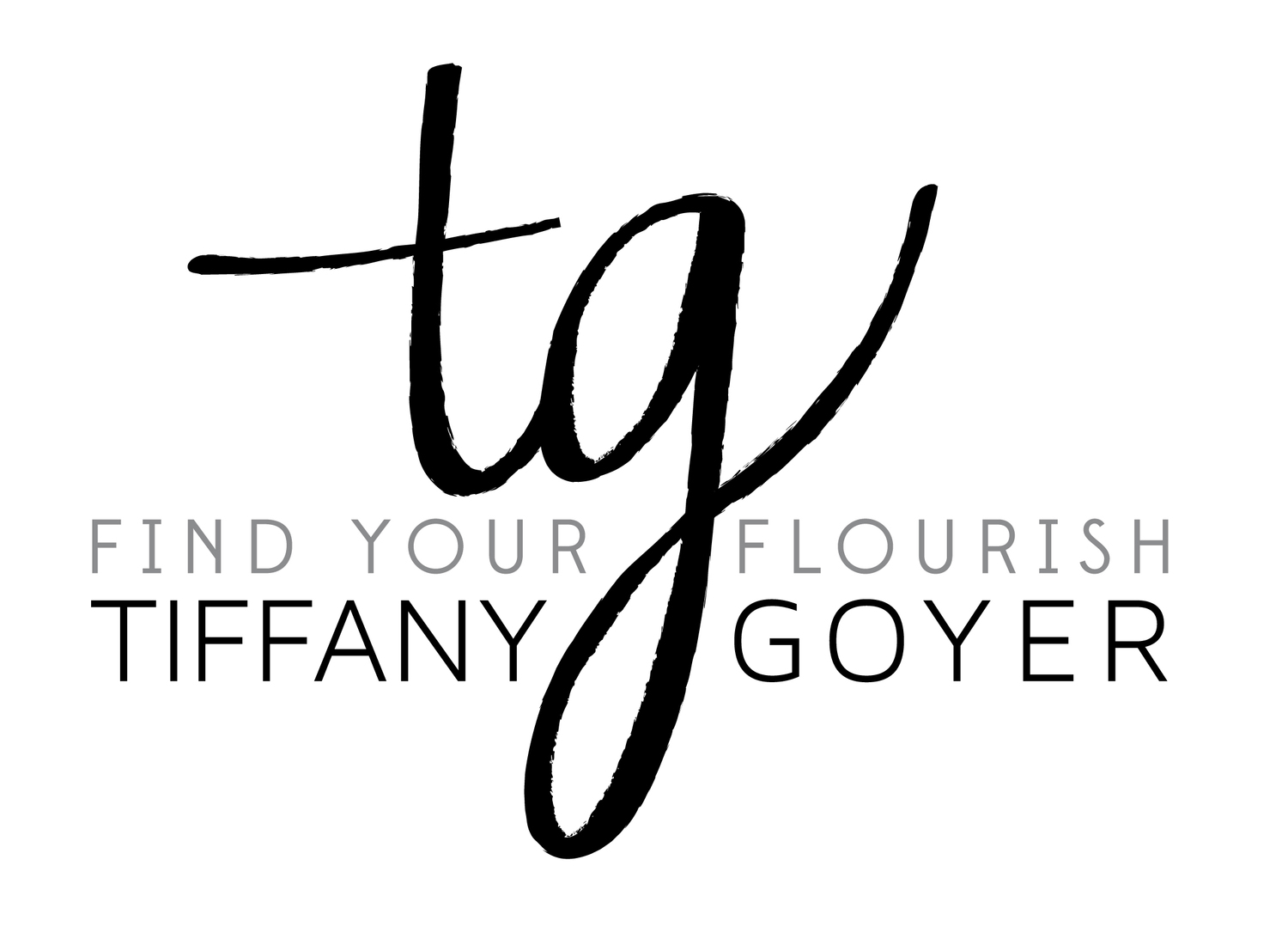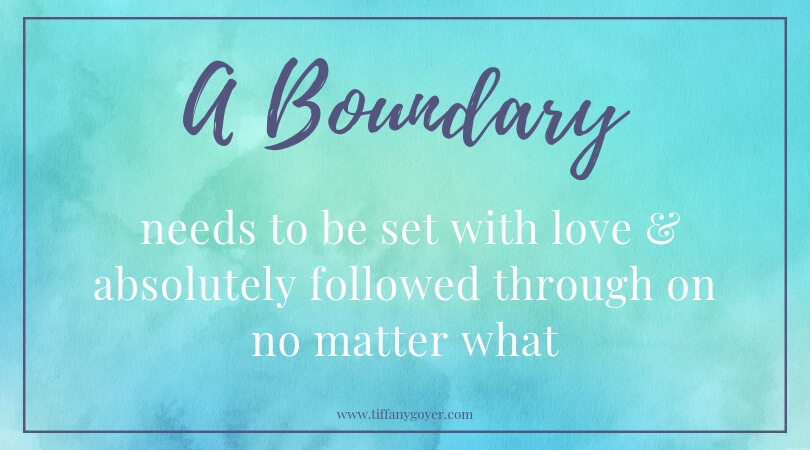What’s a boundary anyway?
Holiday season is among us a I can't think of a better time to talk about the importance of boundaries. A boundary is something that you set when there's been a boundary violation.
What's a boundary violation?
A boundary violation happens when someone comes into your emotional or physical space in a way that’s inappropriate. Then you need to do the work of setting a boundary for yourself.
You get to decide what's "inappropriate" for you.
The boundary is actually what you will do if someone violates you.
Some examples are:
“If you yell at me, call me names, threaten me verbally, or threaten physical violence I will leave or ask you to leave."
“If you hit me, I will call the police and press charges.”
“If you touch me inappropriately in anyway, I will leave and never come back and the relationship will be over.”
Keep in mind that a boundary is never a threat!
I want to ensure that you are super clear about the difference between a boundary and a threat. A boundary is something that you will do in response to what you deem as inappropriate behavior violations.
A threat is when you want someone to do something differently and try to manipulate or control their behavior so that you can feel better.
First of all other people are not responsible for your feelings. Even if they have "done something to trigger" you. Your feelings always come from what you are thinking. Thoughts are what cause your feelings not someone's behavior. (Read more about this concept on thoughts and feelings >>)
Second, you can never REALLY control another person. Ever. Even if it works one time or sometimes. Their behavior comes from what they are thinking and feeling. We always take action or inaction from feelings. So stop trying to control other people. It never works, so stop it for your own sake. It just exhausts you and takes you away from your naturally good feeling SELF.
This is what a threat looks like:
"If you drink at the holiday party we won't come." This is not a emotional or physical boundary violation, in and of itself.
Do you see the difference? OR, maybe with this one:
“You can’t lie to me ever again. I won’t tolerate it. You’re a liar. I can’t believe you’d do something like that to me. We can't be sister-in-laws like this. You better apologize and never do that again or I’m done with this relationship. Better yet, I'll just start lying to you if that's how you're gonna act!"
The truth is, your sister-in-law or whoever it is can say and do whatever she wants. Adults can do whatever they want, at times unfortunately and at other times fortunately.
The cool thing about boundaries is that they allow for the truth, threats don't. No one wants to be manipulated by a threat, and they don’t really work anyway, or at least not in a way that allows for authenticity in the relationship. No one wants to feel unaccepted, controlled or manipulated. Boundaries, are the cleaner more loving way to go.
Should you tell the person that you've set a boundary?
It's totally up to you. You may want to consider that in some cases it’s important to inform the person of your boundary, and sometimes it isn’t. The boundary’s for you. Decide based on what is best for you. Do your thought work around this first to be sure you’re not using your boundary as a threat by telling the person in advance to attempt to control their behavior. It's so tempting to do this.
We usually experience boundary violations because we haven't been clear with ourselves.
Know thyself. Usually boundary violations occur because we haven’t taken care of ourselves and protected our boundaries in the first place. This is not because you are a “bad” person, it’s just because you never got taught how to do this, and furthermore were probably taught how you should people-please instead.
So, what we tend to do is blame the other person, but what we REALLY need to take responsibility (not blame) for our part in creating the situation. And that’s totally ok.
How to know when you need a boundary?
Earlier this week in a mini session I was coaching a woman from our tribe that wanted to understand how to set a boundary for the Thanksgiving 🦃 holiday yesterday. I hope yours was a good one by the way!
Her older sister was coming to stay with her and always makes comments about her weight and various other areas of her life. She decided to tell her sister that if she put her down and discusses her weight that she would leave the house and when she returned they would not discuss it any further. She also would do this as many times as necessary during her sister's visit.
How to set a boundary with ❤️love.
A boundary works best when set with unconditional love for yourself. If you can get to unconditional love for the other than even better — and that's always the goal. Because you my dear, will feel better. It's for your sake and ability to feel the amazing emotion of LOVE within yourself first and foremost. Because love feels great.
Equally as important when you set a boundary is that you must absolutely follow through on it no matter what.
You know when you are ready to make a boundary when these things are true:
1. You are able to set the boundary from a place of love. Are you making the decision out of love for yourself? Ok then you're good.
2. You are able to accept (possibly even love) the person you set the boundary with just as they are.
3. This means you truly understand the concept that adults are "allowed” to do and say whatever they want including what they’re currently doing — and understand that they'll probably keep doing this behavior regardless of the boundary you set. Remember, the purpose of the boundary is not to control then but take care of yourself.
4. You’re honest with yourself and you can absolutely follow through on this boundary, no matter what — You’re 100% ready to enforce the boundary. This may mean you have to leave and you don't feel like it, or you have to miss out on family functions, or break-up a relationship if someone is abusive to you.
Being able to follow through is what makes the boundary effective, you protected and your word to yourself (and sometimes to others) more respected.
The three steps to setting a boundary:
1. Do your self coaching until you feel clear. If you are not clear, get professional coaching. Understand that the other person probably will not change their behavior. Try and prepare yourself for this and get ok with that. Understand and know that they’re allowed to behave however they want. Anyhoo, they’re already doing it whether you think it's appropriate behavior or not. Don't fool yourself— you have to know that the boundary is for you—not to control them. That never works, remember?
2. Be super specific with yourself. Decide ahead of time exactly what the boundary is. What’s the triggering action going to be that will let you know that this is the time to act on the boundary you’ve set? What exactly will you do? Do NOT be vague or haphazard with this. It's a crucial part of effective boundaries.
A few examples:
“If my mother tells me I need to lose weight, I’ll say I love you, but I’m not talking about this with you. If she brings it up again, I will hang up the phone.”
“If a date tries to touch me without my permission, I will leave the date.”
“If my partner yells at me, I’ll say, I love you, and I’m ready to talk about this when you can talk to me without yelling, and I’ll leave the room.”
3. Make a commitment to yourself to keep the boundary and mean business. Otherwise you run the risk of not taking care of yourself, and losing integrity with yourself. You might also feel hopeless and frustrated that you weren’t able to control the other person, which remember is a false notion anyway.
You got this!









